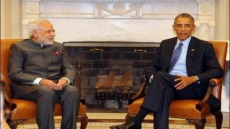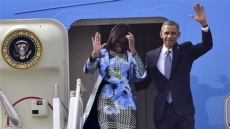Phone hackers in the US are bilking unsuspecting customers of billions of dollars every year through a scheme that was used to finance the 2008 Mumbai terrorist attacks, according to the New York Times.
In 2011, the Federal Bureau of Investigation and police in the Philippines arrested four men who used the scheme to make $2 million in fraudulent calls.
The revenue was directed to a Saudi Arabian militant group that US officials cited by the influential daily believe financed the 2008 Mumbai terrorist bombings.
The swindle, which on the web is easier to pull off and more profitable, affects mostly small businesses and cost victims $4.73 billion globally last year.
That was up nearly $1 billion from 2011, the Times said citing the Communications Fraud Control Association, an industry group financed by carriers and law-enforcement agencies to tackle communications fraud.
But catching the criminals is difficult because the crime can cross as many as three jurisdictions, the Times said.
In one case cited by the daily, hackers targeted the phone system of an architecture firm in Georgia and routed $166,000 worth of calls to premium-rate telephone numbers in Gambia, Somalia and the Maldives in a single weekend last March.
According to telecommunications fraud experts cited by the Times, hackers sign up to lease premium-rate phone numbers, often used for sexual chat or psychic lines and then break into a business's phone system to make calls through it to their premium number.
With high-speed computers, they can make hundreds of calls simultaneously, forwarding as many as 220 minutes' worth of phone calls a minute to the pay line.
The hacker gets a cut of the charges, typically delivered through a Western Union, MoneyGram or wire transfer.
In part because the plan is so profitable, premium rate number resellers are multiplying rapidly, the Times said.





